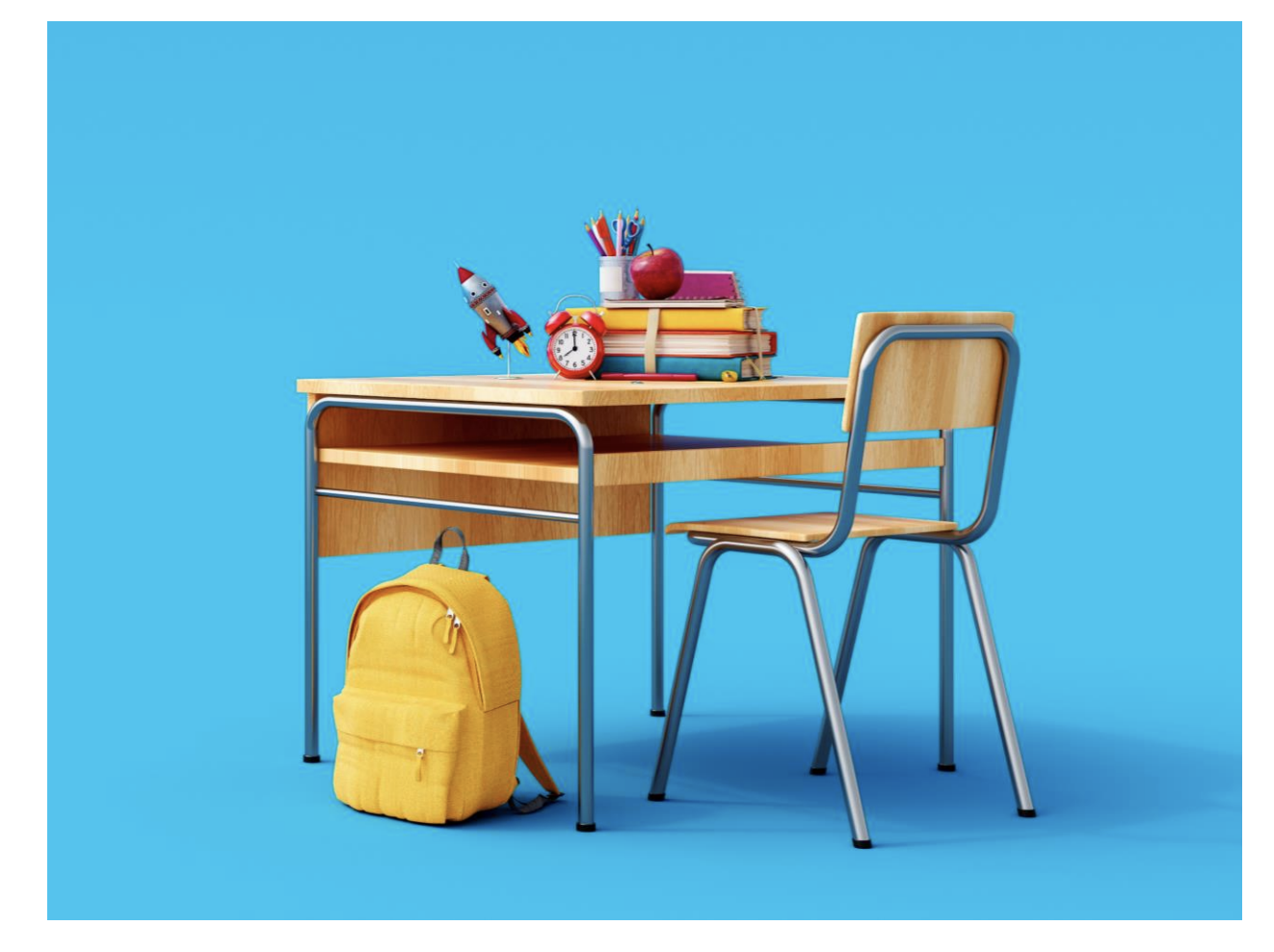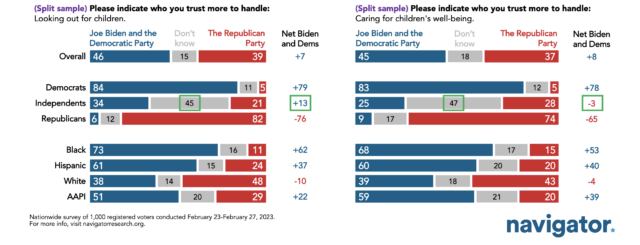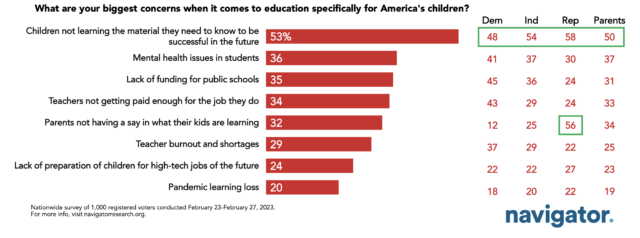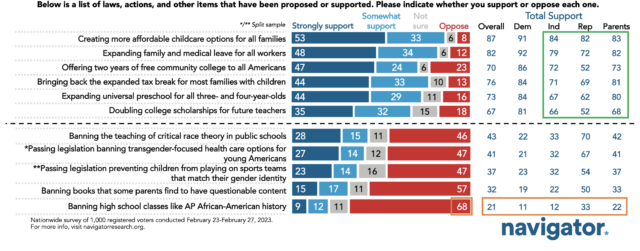- Americans trust Biden and Democrats more than Republicans on looking out for children and caring for children’s well-being.
- Top priorities for kids are safety from gun violence and learning what’s needed for success. Top school concerns are education quality, mental health, funding, and teacher pay.
- Democratic priorities on childcare and education, like affordable childcare, paid family and medical leave, and universal preschool are much more popular than Republican priorities, like banning critical race theory and restricting the rights of transgender students.
Americans Trust Biden and Democrats More Than Republicans to Look Out for Children and Care for Their Well-Being
Independents trust Biden and Democrats more to “[look] out for children” (net +13 Biden and Democrats) but are more divided on which party they trust more to “[care] for children’s well-being” (net +3 Republicans).
Americans’ Top Priorities Around Children Are Preventing Gun Violence and Ensuring Educational Quality
Keeping children “safe from gun violence” is the top priority for Democrats (64%), independents (57%), and parents (51%).
- Republicans stand alone in their prioritization of “preventing [children] from being exposed to woke ideas” (54%) over protecting them from gun violence (40%).
Quality, Student Mental Health, Funding, and Teacher Pay Are Most Important Educational Concerns
“Children not learning the material they need to know to be successful” is the top concern across party lines and among parents.
- “Parents not having a say in what their kids are learning” is a much higher concern for Republicans (56%) than for independents (25%) or Democrats (12%).
Biden and Democrats’ Priorities on Childcare and Education Are Far More Popular Than Republican Priorities
Majorities of independents, Republicans, and parents support a range of Democratic proposals related to education and childcare.
- Nearly seven in ten Americans (68%) oppose “banning high school classes like AP African-American history.”
About The Study
Global Strategy Group conducted public opinion surveys among a sample of 1,000 registered voters from February 23-February 27, 2023. 100 additional interviews were conducted among Hispanic voters. 76 additional interviews were conducted among Asian American and Pacific Islander voters. 99 additional interviews were conducted among African American voters. 100 additional interviews were conducted among independent voters.





